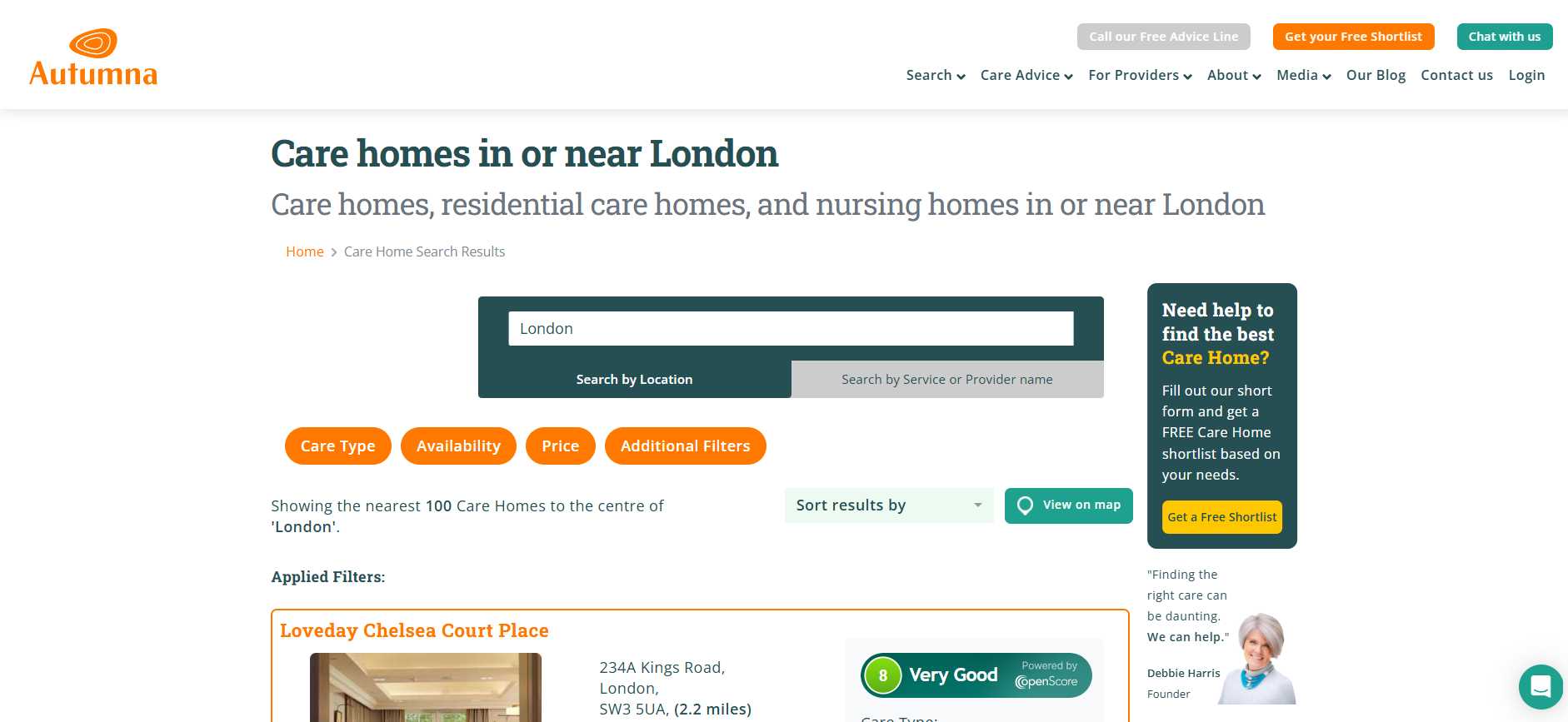Posted by Janine Griffiths
What are the benefits of person-centred care?

When it comes to delivering truly meaningful care, a one-size-fits-all approach just doesn’t cut it. That’s where person-centred care comes in—it’s an approach that places the individual, not just their condition, at the heart of every decision.
Rather than simply treating symptoms or following rigid routines, person-centred care recognises the unique preferences, needs, and values of each person.
But why does this matter? Because the benefits of person-centred care go far beyond comfort, they lead to better health outcomes, stronger relationships, and a deeper sense of dignity and autonomy. Whether you’re a care seeker, a family member, or someone receiving care yourself, this approach can be transformative.
Person-centred care also empowers those delivering your care—leading to more informed decision-making, greater responsiveness, and ultimately, more effective and impactful support tailored to your unique needs.
In this blog, we’ll explore exactly what the benefits of person-centred care are—and why it should be the foundation of every care experience.
Core principles of person-centred care
At the heart of person-centred care are a few guiding principles that ensure individuals are seen, heard, and valued. These principles go beyond clinical care—they shape every interaction and decision, creating an environment where people can truly thrive.
Dignity, compassion and respect
Every person deserves to be treated with kindness and humanity. Person-centred care starts with recognising the individual’s inherent worth and treating them with compassion and respect at all times.
Coordinated care, support and treatment
Care should feel seamless—not fragmented. Person-centred care ensures that all professionals involved in an individual’s care are working together, sharing information, and aligning their approach to provide consistent, joined-up support.
Personalised care, support and treatment
There’s no such thing as “standard” care. Person-centred care is tailored to the individual’s preferences, needs, and circumstances. It means listening closely and adapting plans so that the care provided feels relevant, appropriate and meaningful.
Supporting people to recognise their strengths and abilities
Person-centred care isn’t just about meeting needs—it’s about empowering people. This approach helps individuals recognise their own strengths, build on their abilities, and stay as independent and involved in their care as possible.
Benefits for individuals receiving care
One of the most powerful benefits of person-centred care is the positive impact it has on an individual’s overall wellbeing. When care is tailored to the person—not just their medical condition—it fosters a deeper sense of dignity and self-worth. People feel truly seen and heard, which can significantly improve mental and emotional health.
Improved quality of life
One of the most meaningful benefits of person-centred care is the way it enhances overall quality of life. When individuals are treated as people first—rather than just patients—they experience care that reflects their personal values, routines, and preferences. This creates a more fulfilling daily experience and helps individuals feel safe, respected, and truly cared for. The focus shifts from simply meeting basic needs to helping people live as well and as fully as possible.
Greater emotional wellbeing and reduced anxiety
When care is delivered with empathy and tailored communication, people often feel more at ease. Being listened to and having a say in decisions reduces feelings of helplessness and anxiety. Knowing that care will be delivered in a way that respects their personality, beliefs, and preferences can offer significant emotional comfort—particularly for those living with long-term conditions or cognitive impairments like dementia. This emotional support is one of the most overlooked yet powerful benefits of person-centred care.
More independence and control over daily life
Person-centred care empowers individuals to make choices about their daily routines—from what they eat to when they sleep or take part in activities. This level of control, however small, can make a huge difference in how people experience care. It reinforces a sense of purpose and independence, and helps individuals stay connected to their identity and routines, even in supported living environments.
Enhanced trust and stronger relationships with caregivers
When caregivers take the time to understand a person’s history, preferences, and personality, they can build genuine relationships based on mutual respect. This trust makes it easier for individuals to express their needs, concerns, or discomfort, leading to better communication and more responsive care. These strong, human-centred connections are a key reason why so many highlight the long-term benefits of person-centred care in both residential and home care settings.
Better health outcomes
On a practical level, personalised care often leads to better health outcomes. When someone feels listened to and understood, they’re more likely to engage in their care plan and communicate openly with professionals. This builds trust, strengthens relationships, and contributes to more effective and compassionate support—one of the many lasting benefits of person-centred care.
Benefits for family members
The benefits of person-centred care don’t just support the individual receiving care—it also brings significant benefits to their loved ones. Families often play an important role in the care journey, and when their involvement is welcomed and valued, the experience becomes more positive and reassuring for everyone involved.
Peace of mind knowing their loved one is truly heard and understood
One of the greatest comforts for families is knowing that their loved one is treated as an individual, not just a list of medical needs. Person-centred care ensures that their values, preferences and emotions are acknowledged and respected. This reassurance can ease the worry and guilt that many families feel, especially when they can’t be present every day.
Better communication and involvement in care planning
With person-centred care, families are seen as partners in the care process. Open, honest communication becomes the norm, and families are encouraged to contribute insights and feedback. This collaborative approach helps ensure care plans are more accurate, responsive and aligned with what matters most to the individual—and keeps families informed and involved every step of the way.
Stronger sense of partnership with care providers
When care teams take time to build relationships with families, it creates trust and mutual respect. Families feel valued, not sidelined, and are more likely to work in harmony with care professionals. This sense of partnership leads to smoother decision-making, fewer misunderstandings, and a more supportive environment for everyone involved.
Benefits for care providers and professionals
Person-centred care isn’t just about what’s best for you—it also supports the people who care for you. When care professionals feel empowered, respected, and connected to the work they do, they’re able to provide more focused, compassionate, and consistent support. That means you benefit from a team that’s not only better equipped to meet your needs, but more invested in your wellbeing—day in, day out. Below we have listed the main benefits of person-centred care that providers experience:
Improved job satisfaction and morale
When care professionals are empowered to deliver personalised, compassionate care, their work becomes more meaningful. They’re able to build genuine relationships with those they support, which leads to a greater sense of purpose and pride in their role. Feeling appreciated and seeing the positive difference they make each day naturally boosts morale and job satisfaction.
Fewer complaints and conflicts
Clear communication, mutual respect, and tailored care reduce the likelihood of misunderstandings or dissatisfaction. Families and residents feel heard and involved, which leads to fewer formal complaints and smoother day-to-day interactions. This not only eases pressure on staff but also helps create a calmer, more collaborative care environment.
Better care outcomes and more meaningful relationships with clients
When care is built around a person’s unique needs and preferences, outcomes often improve—from emotional wellbeing to physical health. At the same time, care professionals can create deeper, more rewarding relationships with care seekers. These connections enhance the overall experience for everyone and are a powerful example of the real-world benefits of person-centred care in action.
Positive reputation and compliance with regulatory standards
Person-centred care is increasingly recognised as best practice by care regulators and inspection bodies. Providers who embed it in their culture are more likely to receive positive ratings and public feedback. This helps build a strong reputation—further strengthening the organisation’s success.
Looking for a care provider?
If you are looking for a care provider Autumna can help. Head over to our directory and select the type of care you need. The next step is to enter your search location, and press enter.
You will then be presented with a list of care results.

The orange tabs above the search results allow you to refine your search even further according to a set of criteria that aligns with your requirements.
You can also use our shortlisting tool to generate an even more personalised list of results.
Alternatively, our friendly and knowledgeable team of experts is always on hand to answer your questions. You can connect with them on 01892 335 330.
Receive a Free Care Provider Shortlist!
Let our expert team of advisers get your search off to a great start.
Tell us a little about your needs and we'll send you a bespoke shortlist of care providers! Click the button below to begin, it takes just a few minutes.
Other articles to read
From the blog

Older Persons Care Advice
What is Discharge to Assess?
April 16th, 2025
Discover how Discharge to Assess (D2A) supports faster recovery, reduces hospital stays, and how Autumna helps simplify finding the right care.

Older Persons Care Advice
What are the benefits of person-centred care?
April 9th, 2025
Discover the benefits of person-centred care—from improved wellbeing to better outcomes—for individuals, families, and care providers alike.

Older Persons Care Advice
How to choose the best coastal areas to retire
April 8th, 2025
Discover the best coastal areas to retire in the UK — from hidden seaside gems to practical tips for planning your move and care with confidence.
Frequently Asked Questions
Person-centred care is an approach that puts the individual’s preferences, values, and needs at the heart of all decisions and care planning.
Benefits include improved quality of life, better health outcomes, stronger relationships, reduced anxiety, and increased independence.
It offers peace of mind, clearer communication, and a sense of partnership with care professionals, making families feel included and reassured.
It boosts job satisfaction, reduces complaints, creates meaningful client relationships, and supports positive care ratings and compliance.






